All of Kenneth Branagh's Shakespeare movies, ranked
For many lovers of Shakespeare, Kenneth Branagh is the modern conduit for the Bard – the man most dedicated to interpreting and honoring the works of the playwright from Stratford-upon-Avon.
It’s not hard to see why – over the last 30 years, Branagh has directed six feature films inspired by Shakespeare, in addition to starring in even more and taking on numerous stage projects. His latest project, All Is True, which he both directs and stars in, offers him the opportunity to literally step into Will’s shoes, portraying Shakespeare in the final years of his life after he retires and returns to Stratford.
The film joyfully plays with Shakespeare’s biography, sprinkling in a mix of facts and winking suppositions, alongside an all-star cast who know their way around a Shakespeare play, including Judi Dench and Ian McKellen. “It was making a connection between the man and the work. A desire to find the human being in Shakespeare,” Branagh previously told EW. “It was to find Shakespeare the man behind Shakespeare the work.”
It’s arguably a task Branagh has been working on his entire life. In honor of the May 10 release of All Is True, my fellow Shakespeare nerd here at EW, Devan Coggan, and I have ranked all of Branagh’s cinematic Shakespearean efforts – for clarity’s sake, we’ve stuck to projects he directed that are strictly movies (so, no Othello and no live broadcasts of theatrical productions).
So without further ado (which would frankly be much ado about nothing), here is our definitive ranking of Branagh’s takes on the Bard.
6. As You Like It (2006)
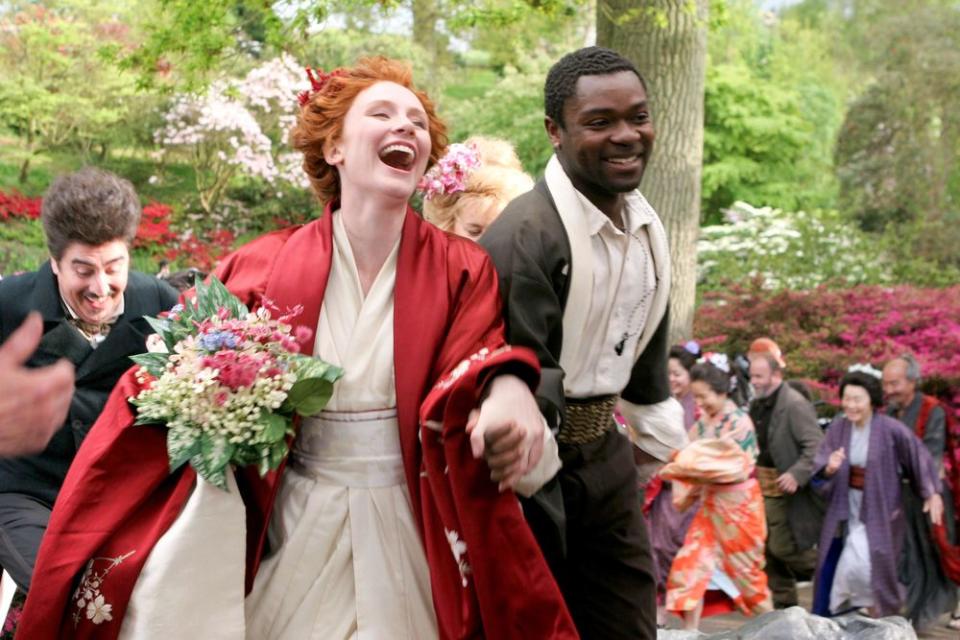
For his most recent and most forgettable adaptation of Shakespeare’s work, Branagh transports the Bard’s whimsical Forest of Arden to 19th-century Japan. It’s an intriguing idea, but one that falls flat: Branagh’s Japan is almost entirely populated by non-Japanese actors, which begs the question why he even bothered to shift the setting. Sure, Bryce Dallas Howard and David Oyelowo are charming as the lovers Rosalind and Orlando, but the film itself is missing the play’s zippy charm and wit. —Devan Coggan
5. Love’s Labour’s Lost (2000)
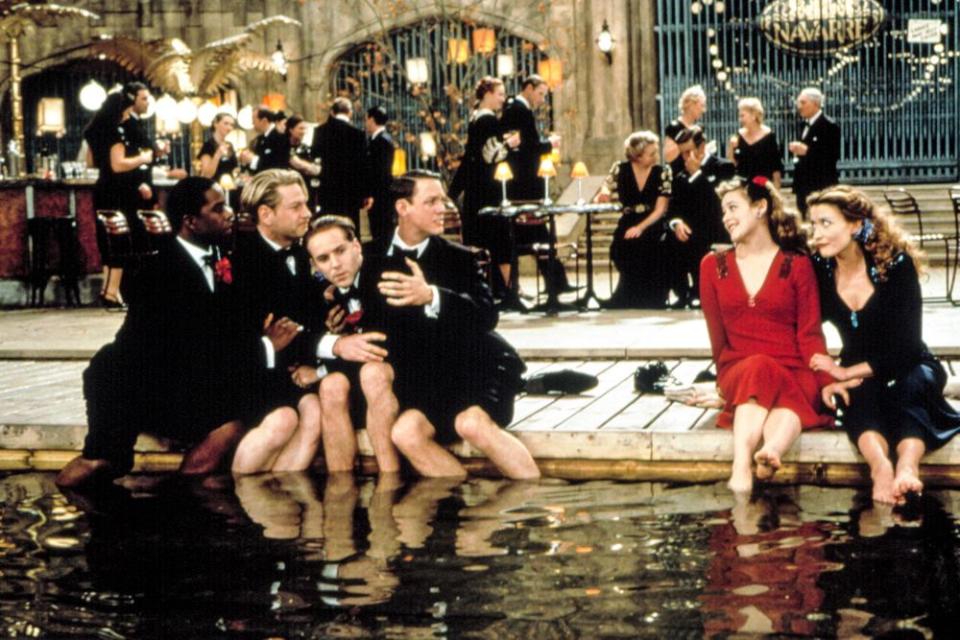
One of Shakespeare’s earliest comedies, Love’s Labour’s Lost lacks the precision of later plays like Twelfth Night, As You Like It, and Much Ado – something any production has to come up against. Branagh does an admirable job of tackling a lesser play. He makes the baffling, yet mostly delightful, choice of turning it into a 1940s-set musical. Interspersed among the soliloquies and verse are standards from the likes of Cole Porter, the Gershwins, and Irving Berlin. Dance numbers pay tribute to Golden Age musicals, with clear nods to Gene Kelly, Fred Astaire and Ginger Rogers, and more – albeit with a far less fleet-footed cast. They are an eclectic assortment, featuring Branagh himself as one of the young lovers, as well as Nathan Lane as a vaudeville worthy clown, and Alicia Silverstone of all people as the Princess of France (it’s very disconcerting expecting an “As if!” to punctuate the cadences of iambic pentameter at any moment). This is the only film adaptation of this particular Shakespeare play, but it’s still far from Branagh’s best – if only because its charms lie more in the musical numbers than the text itself, divorcing the proceedings from the very Shakespeare-ness of it all. It’s a mildly enchanting attempt to replicate a classic musical – but in this case, a rose by any other name does not smell as sweet. —Maureen Lee Lenker
4. Henry V (1989)
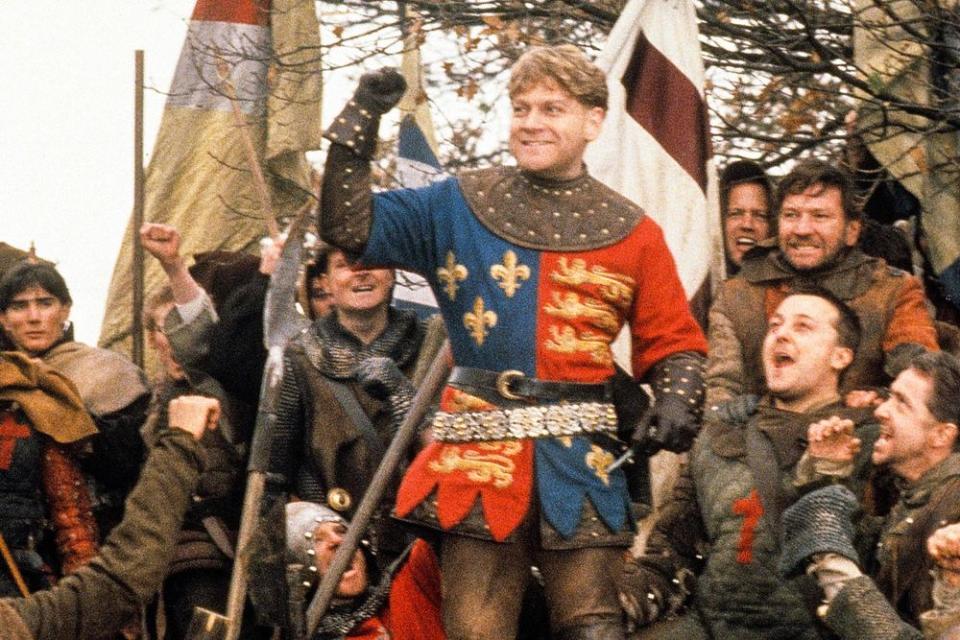
Before Branagh, the best-known Henry V was Laurence Olivier’s sunny 1944 film. If Olivier’s film is all style, glory, and rah-rah patriotism, Branagh prefers to get down in the mud, showing the horrors and losses of battle as realistically as possible. Branagh stars in his directorial debut as the young king, who invades France and leads his men to an improbable victory. His bloody, chaotic portrayal of the battle of Agincourt would be a triumph for any director, let alone a first-timer who had previously only worked on the stage. The starry cast includes Ian Holm, Judi Dench, Robbie Coltrane, Brian Blessed, and a teenage Christian Bale, but Branagh’s smartest casting choice is Derek Jacobi as the Chorus, narrating the action as a modern-dressed spectator looking back on history.
Perhaps the celebrated moment of Branagh’s Henry V is his rousing St. Crispin’s Day speech, as he addresses his few, his happy few, his band of brothers. The music, from frequent Branagh collaborator Patrick Doyle, can be a bit heavy-handed throughout the film, but it swells under Branagh’s speech to stirring effect. Another standout moment is the final scene, where the tone shifts wildly to romantic comedy, as Branagh’s Henry clumsily attempts to woo the French-speaking princess Catherine (Emma Thompson). It’s a slightly jarring move after the blood and drama of Agincourt, but Branagh and Thompson’s playful sparring is a delight, and it foreshadows their starring performance four years later in Much Ado About Nothing. —DC
3. All Is True (2019)
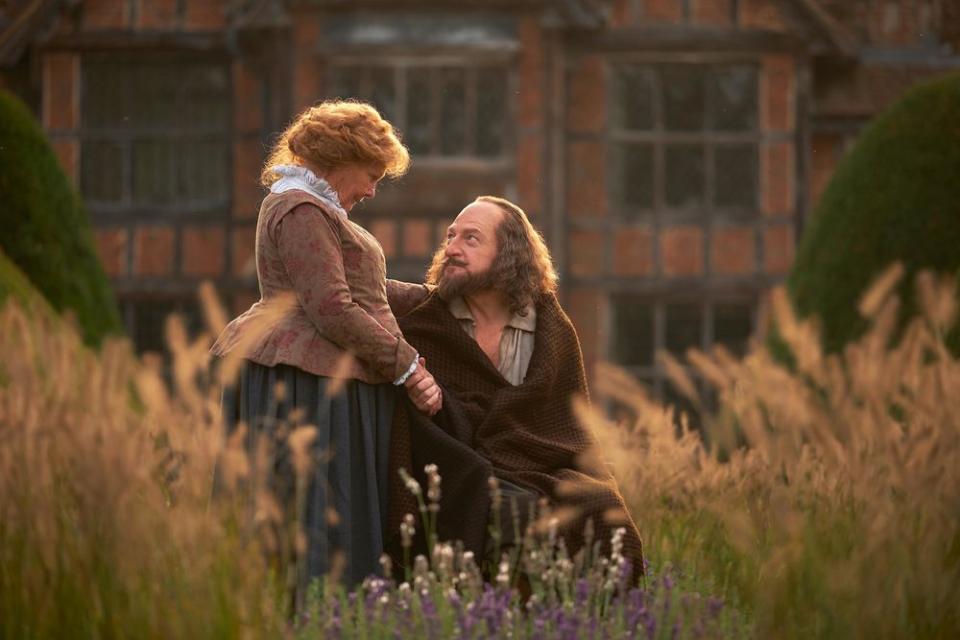
Making a Shakespeare biopic is no easy task – and it’s even harder to strike the right balance of whimsy and respect. You want to honor the man and his work without falling prey to putting him on an infallible pedestal. With All Is True, Branagh manages to do mostly all of those things. For anyone who loves the Bard (if you’re not, how have you got this far in this article?), it’s a winking tribute to the handful of facts we have about his life, with plenty of nods to theories people have developed based on the largest body of evidence – his plays. Branagh treats Shakespeare like Shakespeare treats historical figures – using the loose facts of their lives to paint a more sweeping story that gets at grander themes. In this case, it’s the nature of genius and what it means to lead an ordinary life, as well as themes of loss, redemption, and family strife. It’s boosted by appearances from deft Shakespearean actors like Judi Dench and Ian McKellen. As Henry Wriothesley, McKellen gets the best scene in the film – one that hits on everything from Shakespeare’s rivals to his rumored sexuality to the authorship question before beautifully summing up why the plays have endured across the centuries. Here, Branagh becomes the literal author of his own success. In a sense, All Is True allows him the chance to both have a sense of humor about his body of work while re-asserting the value of its existence. —MLL
2. Hamlet (1996)
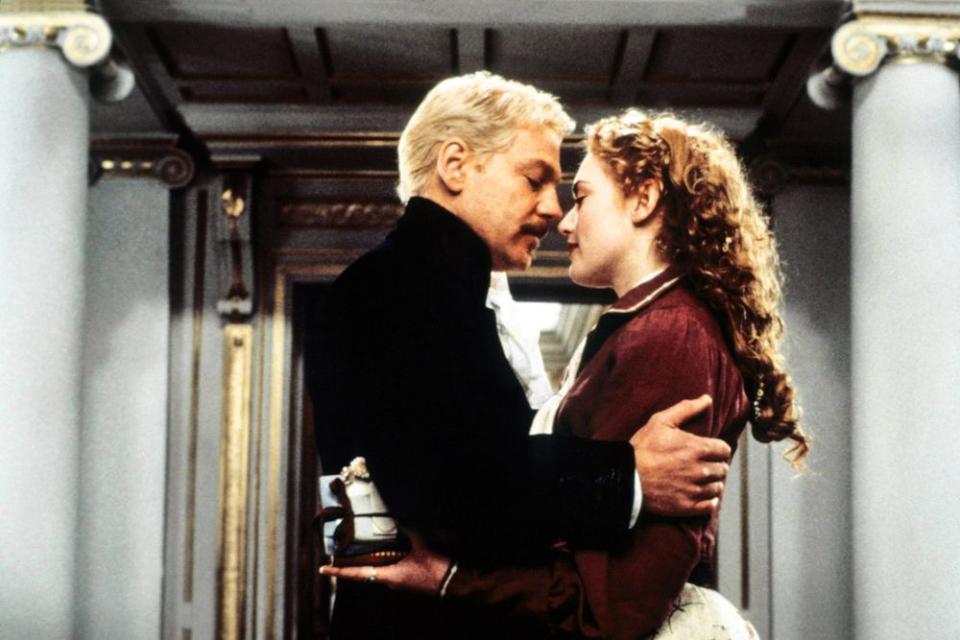
Every Shakespeare nerd has a personal favorite Hamlet, but Branagh’s sprawling 1996 production consistently ranks as one of the most beloved. Branagh presents the unabridged play for the first time on screen, but even clocking in at a whopping four hours, this Hamlet is remarkably accessible, exploring the Bard’s most tragic hero and all his faults in depth. Lavish sets and a 19th-century setting give this Hamlet a sense of grandeur, with appearances by Julie Christie, Derek Jacobi, Kate Winslet, Charlton Heston, Billy Crystal, Robin Williams, and more. At the center of it all is Branagh’s performance, tackling one of the theater’s most notorious roles with introspection, whirling between mania and quiet contemplation.
Branagh may have been more eager to experiment with some of his other adaptations, changing up lines and settings, but his Hamlet is a devoted love letter to the Bard’s most masterful work. —DC
1. Much Ado About Nothing (1993)

Much Ado About Nothing is not just the greatest Kenneth Branagh Shakespeare film, it’s perhaps the greatest cinematic Shakespeare adaptation ever. It’s got a killer cast – from then-real-life couple Branagh and Thompson as sparring lovers Beatrice and Benedick to Denzel Washington as a prince to Michael Keaton as Shakespeare’s most hysterical clown, Dogberry, to Keanu Reeves in what is simultaneously one of his most perplexing, hilarious, and entertaining performances. Kate Beckinsale made her feature film debut as ingénue Hero. Much Ado is clever and charming from start to finish, capturing the effervescence at the heart of Shakespeare’s best comedies, while also leaving room for the very real melancholy underneath. There’s a reason why, decades after their split, people still obsess over Thompson and Branagh as a celebrity couple – and this movie is it. Their chemistry as Beatrice and Benedick is the chef’s kiss of romantic pairings. Much Ado captures the best of their humor, wit, and ability to make Shakespeare’s language feel accessible, anchoring the various story lines swirling around them. Watching them trade barbs is a breathless experience, and you instantly get the feeling you’re watching the two smartest people in the room (which, given their combined associations with Austen and Shakespeare, isn’t far off from a literary standpoint). Shot on location in Italy, the entire film feels like a joyous, sunny holiday you want to go on again and again. Even for those who love Shakespeare, his language can occasionally be a slog – and when it’s required reading in school, it’s hard for many not to view his plays as “homework.” In contrast, Much Ado is a house party – one where you’re invited to enjoy the good company and good wine as long as you want. —MLL
Related content:


